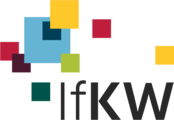
Project Partners
TU Braunschweig, Institut for Communication Science
Technion, Israel Institute of Technology, Faculty of Education in Science and Technology
Description
This innovative research project delves into the intersection of science communication, human-machine communication, and science education to explore the impact of AI technology on informed decision-making in everyday scenarios. By focusing on the perception and use of technologies such as Project Debater (IBM) and ChatGPT (OpenAI), the project seeks to understand how people interact with and make sense of communicative AI stepping into the role of a science communicator. Additionally, the project reevaluates the concept and measurement of science literacy in adult life in light of future AI advancements. Through comparative theoretical and empirical work conducted in Germany and Israel, including interviews, performance tasks, and online experiments, this project lays the foundation for further research on AI-augmented science communication and the development of AI-based intermediaries for scientific information.
Duration
October 2022 – September 2025
Publications
Presentations
Jonas, E., Taddicken, M. (2025, September 15-17): Real-Time-Response-Measurement in HMC Research: An Example Based on Trustworthiness Evaluations of Empathic and Humorous Communicative AI as an Intermediary for Science-related Information [Accepted Presentation]. First joint conference of the „Digital Communication“ specialist group of the German Communication Association (DGPuK) and the interest group ‘Human-Machine Communication’ of the International Communication Association (ICA), Dresden, Germany.
Greussing, E., Jonas, E., Taddicken, M. (2025, September 15-17): From human experts to artificial authorities? Reconsidering the concept of epistemic authority in the context of generative AI [Accepted Presentation]. First joint conference of the „Digital Communication“ specialist group of the German Communication Association (DGPuK) and the interest group ‘Human-Machine Communication’ of the International Communication Association (ICA), Dresden, Germany.
Jonas, E. & Taddicken, M. (2025, June 12). Empathic, humorous, and ... trustworthy? A mixed-methods study on the perceptions of voice-based AI systems as intermediaries for science-related information [Accepted Presentation]. Pre-Conference "Role and Contribution to Communication Science and Beyond" der International Communication Association (ICA), Denver, USA.
Greussing, E., Guenther, L., Baram-Tsabari, A., Dabran-Zivan, S., Jonas, E., Klein-Avraham, I., Taddicken, M., Agergaard, T., Beets, B., Brossard, D., Chakraborty, A., E., Fage-Butler, A., Huang, C.-J., Nielsen, K. H., Kankaria, S., Lo, Y.-Y., Riedlinger, M., & Song, H. (2024, October). Mapping cross-national patterns: The use of generative AI in science-related information retrieval across seven countries [Presentation]. Public Communication of Science and Technology (PCST) China Symposium 2024, Suzhou, China.
Jonas, E., Greussing, E., & Taddicken, M. (2024, September). Unravelling (hybrid) trust in generative AI as intermediaries for science-related information – Insights from a qualitative interview study [Presentation]. 10th European Communication Conference (ECC), Ljubljana, Slovenia.
Greussing, E., Jonas, E., & Taddicken, M. (2024, September). The Perception and Role of Transparency in LLM-based Chatbots for Science Information Retrieval [Presentation]. 10th European Communication Conference (ECC), Ljubljana, Slovenia.
Jonas, E., Greussing, E., & Taddicken, M. (2024, June). How do laypeople assess their trust in LLM-based chatbots when they seek science-related information? Results from a qualitative interview study using a hybrid trust approach [Presentation]. Annual Meeting of the Science Communication Division of the German Communication Association (DGPuK), Zurich, Switzerland.
Greussing, E., Guenther, L., Baram-Tsabari, A., et al. (2024, June). Predicting and Describing the Use of Generative AI in Science-Related Information Search: Insights from a Multinational survey [Presentation]. Annual Meeting of the Science Communication Division of the German Communication Association (DGPuK), Zurich, Switzerland.
Greussing, E., Jonas, E., & Taddicken, M. (2024, June). The Impact of Transparency: A Qualitative Investigation of LLM-based Chatbots in Science-Related Information Search [Presentation]. Annual Meeting of the Science Communication Division of the German Communication Association (DGPuK), Zurich, Switzerland.
Workshops
Frehmann, K., Peter, E., Klein, S., Greussing, E., & Gaiser, F. (2023, May). Mit der (Un-)Beständigkeit der Forschungsobjekte in der HMC umgehen [Workshop]. 68th Annual Meeting of the German Communication Association (DGPuK), Bremen, Germany.